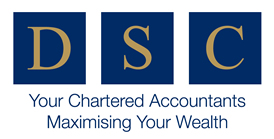The Prime Minister, Boris Johnson speaking at a press conference on Saturday night, 31 October 2020, confirmed widespread expectations of a second national lockdown in England to help stem the growing resurgence of the coronavirus. The Government was faced with significant concerns that if they took no action, the NHS could be overwhelmed with death rates far exceeding those seen in the first lockdown.
The four week lockdown came into effect on Thursday 5 November and applies until Wednesday 2 December 2020. This lockdown will close pubs, restaurants, entertainment venues, hotels and non-essential shops and people will be advised to work from home if possible. In a marked departure from the first spring lockdown, schools, colleges and universities remain open. The exit strategy from this lockdown remains unclear and there are fears that the lockdown could continue beyond this period if the infection rate does not reduce significantly.
We have set out below the most up-to-date support measures available to businesses following the announcement of these new restrictions.
Coronavirus Job Retention Scheme
The Coronavirus Job Retention Scheme (CJRS) commonly known as the furlough scheme will be extended until the 31 March 2021. The most recent update (further extending the life of the scheme) was announced by the Chancellor Rishi Sunak when delivering his fourth Winter Economic Plan to the House of Commons on 5 November 2020.
The Chancellor confirmed that employees will receive up to 80% of their salary for hours not worked. There will be a review date of the CJRS in January 2021 which may see employers taking on an increased financial contribution if the economic and health outlook of the country show signs of improvement.
It had been announced that the CJRS would be replaced by the Job Support Scheme (JSS), a scheme that would have topped up wages for people returning to work on reduced hours. The introduction of the JSS has now been put on hold.
A bullet-point summary of the main details of the CJRS extension announced is set out below:
- People who are unable to work will receive up to 80% of their wages. This payment is subject to a monthly maximum of £2,500 per employee (for hours not worked). Employers will have the discretion to top-up the payments if they so wish.
- The scheme will apply across the UK, in England, Wales, Scotland and Northern Ireland even where the regions are subject to different lockdown restrictions.
- Employers will be required to pay employer NICs and pension contributions for their employees whilst on furlough.
- Flexible furloughing, whereby employers can bring back employees to work part-time will be allowed. Employers will have to pay employees for the hours they work but can still use the scheme to cover any normal hours where employees are furloughed.
- To be eligible, employees must have been registered on their employers PAYE payroll by 23:59 on 30 October 2020. The employer must have made a PAYE Real Time Information (RTI) submission to HMRC between 20 March 2020 and 30 October 2020, notifying a payment of earnings for that employee.
- Employees employed as of 23 September 2020 and on payroll, who were made redundant or stopped working for the employer afterwards can also qualify for the scheme if they are re-employed and placed on furlough.
- All employers with a UK bank account and UK PAYE schemes can claim the grant. Neither the employer nor the employee needs to have previously used the CJRS.
- The first claims under the extended CJRS can be made from 8am on Wednesday 11 November. Claims for November must be submitted to HMRC no later than 14 December 2020.
- There will be no gap in eligibility between the previously announced end date of the scheme on 31 October 2020 and this extension.
Mortgage holidays
It has also been confirmed that mortgage payment holidays will no longer end as planned on 31 October 2020. Borrowers who have been impacted by coronavirus and have not yet had a mortgage payment holiday will be entitled to a six month holiday, and those that have already started a mortgage payment holiday will be able to top up to six months without this being recorded on their credit file.
Cash grants
It had been previously announced that businesses in England that are forced to shut as a result of a lockdown will be eligible for grants of up to £3,000 per month payable every two weeks. Businesses will be eligible to claim after two weeks of closure.
The amount businesses will be able to claim from their local authority depends on their rateable value:
- Small businesses with a rateable value of or below £15,000 will be able to claim £1,334 per month or £667 per two weeks.
- Medium-sized businesses with a rateable value between £15,000 and £51,000 will be able to claim £2,000 per month, or £1,000 per two weeks.
- Larger businesses will be able to claim £3,000 per month, or £1,500 per two weeks.
Further support for businesses
The government is providing an additional £1.1bn to Local Authorities in England, distributed on the basis of £20 per head. These payments are designed to help Local Authorities to support businesses more broadly.
Self Employed Income Support Scheme Extension (SEISS)
The Government has also confirmed that there will be additional help for the self-employed during Lockdown 2.0.
It had previously been announced that the grants for the self-employed would be based on 40% of previous qualifying earnings for the months of November, December and January. The November figure was then increased to 80%. It has now been confirmed that the self-employed will receive 80% of average trading profits for the entire three month period. This will increase the grant for the three months to a maximum of £7,500 made available to those who meet the eligibility requirements.
It has also been confirmed that the claims window for the grant is being brought forward from 14 December to 30 November to allow payments to be made more quickly.
An additional second grant will be made available from 1 February 2021 to 30 April 2021. The level of this second grant amount is subject to review and will be set in due course.
Government-backed loan schemes
The deadline for applications for government-backed loan schemes and the Future Fund have been extended until 31 January 2021.
It will also be possible for businesses to ‘top up’ existing Bounce Back Loans should they need additional finance. This will apply to businesses who borrowed less than their maximum allowance.
Devolved administrations
There has also been an increase in the upfront guarantee of funding for the devolved administrations from £14 billion to £16 billion. This uplift will continue to support workers, business and individuals in Scotland, Wales and Northern Ireland.
Job Retention Bonus
The Job Retention Bonus was meant to provide a £1,000 bonus payment to employers that brought back employees that were furloughed under the CJRS from November 2020 to January 2021. Following the extension of the CJRS, it has been confirmed that the Job Retention Bonus will not be paid in February. The government will instead redeploy a retention incentive at the appropriate time.
If you would like to discuss this article in more depth, please contact DSC Accountants today.

